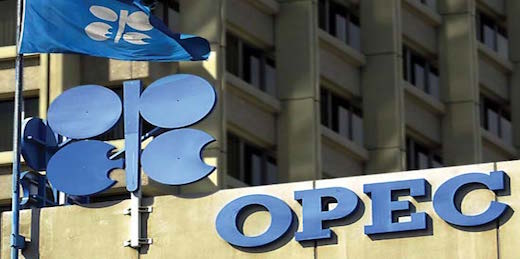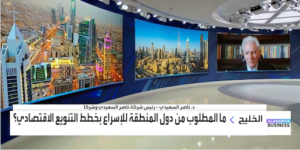Comments on the OPEC’s oil production cut was published in the article titled “Oil’s Well?”, in the Feb 2017 issue of TRENDS magazine.
Only the comments are posted below. The entire article can be accessed here.
On the impact of the production cut:
“The New Oil Normal with lower oil prices and structural change in the oil market led to massive budget and current account deficits for oil producers,” Dr. Nasser Saidi, president, Nasser Saidi & Associates, explained. He added: “The majority are highly dependent on oil as the main source of government revenue and exports. While the GCC countries have substantial fiscal buffers and foreign exchange reserves, the deficits were not sustainable.”
“The GCC countries have responded by undertaking long-delayed economic reforms including government expenditure rationalization, the scaling back of subsidies and other wasteful expenditure as well as the planned introduction of taxation,” he further told TRENDS. “But with the recent OPEC export cuts and subsequent rise in oil prices, the question is whether the policy reforms will be maintained. While the temptation will be to delay the implementation of reforms, the strategy and policies are grounded in the imperative of greater economic diversification, including production, revenue and export diversification.”
“Policy reforms are likely to proceed as planned in order to have greater private sector participation and job creation,” Saidi continued. “Saudi Arabia’s plan to partially privatize Aramco and other state-owned assets is likely to proceed accompanied by corporate governance reforms, including greater transparency and disclosure.”
On the way forward:
“There are more fundamental forces and trend factors at work,” Saidi noted. “Disruptive innovation is making renewable energy sources increasingly competitive to fossil fuels. The levelized cost of solar and onshore wind electric power is now cost competitive with oil, gas and coal in many countries. The year 2016 will be recorded as the renewable energy turning point: multiple records were broken – the latest in the UAE – with deals to generate electricity from sunshine for less than three cents a kilowatt-hour, half the average global cost of coal power.” He added: “Given the economics of renewable energy and technological advances in energy storage, renewable investments will become a driver of economic growth and development and job creation (with solar photovoltaic alone creating 2.8 million jobs of a total of 8.1 million globally) across a broad spectrum of activities, from infrastructure and logistics to housing, construction and transportation, to agriculture and manufacturing. For the Gulf countries that are blessed with high levels of solar irradiance, this is a historic moment of opportunity to decarbonize and bet on a solar future.”





